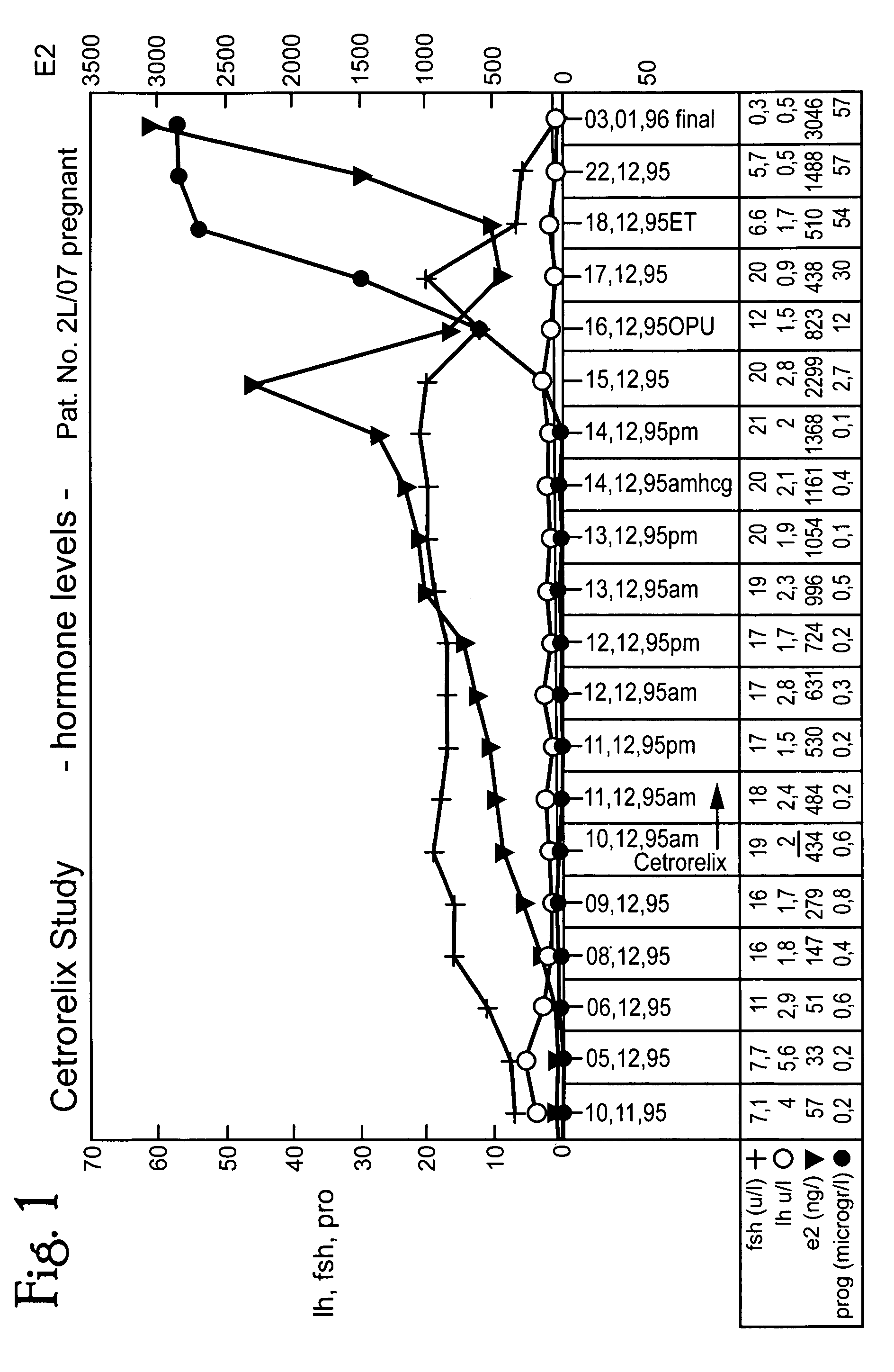LHRH-antagonists in the treatment of fertility disorders
a technology of agonists and hormones, applied in the direction of peptides, drug compositions, peptides, etc., can solve the problems of severe adverse events, pituitary cannot respond to agonistic pretreatment, etc., and achieve good pregnancy rate, good follicle and oocyte quality, and good fertilization rate
- Summary
- Abstract
- Description
- Claims
- Application Information
AI Technical Summary
Benefits of technology
Problems solved by technology
Method used
Image
Examples
example 2
[0052]Combination of the GnRH antagonist Cetrorelix, clomifen citrate(CC) and gonadotrophins for hormonal stimulation for IVF / ICSI.
[0053]New controlled ovarian stimulation (COS) protocols become possible, which combine the advantages of clomifen citrate / gonadotrophin stimulation and pituitary suppression with Cetrorelix.
[0054]COS was started on day 2 after spontaneous menstrual bleeding using 100 mg CC per day for 5 or 7 days. The antagonist Cetrorelix (0.25 mg s.c.) was given starting on stimulation day 6 combined with either urinary hMG or recombinant FSH (3 ampoules / d) in a prospective randomized way.
[0055]After two days of gonadotrophin injection, the dose was individualized. Human chorionic gonadotropin was given for ovulation induction, if at least 3 follicles were ≧17 mm in diameter. In total, 30 patients were included in the study. 15 were randomized in each group. Intra cytoplasmatic sperm injection (ICSI) was applied in each case.
[0056]Results: A mean number of 24±4.7 and ...
PUM
| Property | Measurement | Unit |
|---|---|---|
| diameter | aaaaa | aaaaa |
| diameter | aaaaa | aaaaa |
| diameter | aaaaa | aaaaa |
Abstract
Description
Claims
Application Information
 Login to View More
Login to View More - R&D
- Intellectual Property
- Life Sciences
- Materials
- Tech Scout
- Unparalleled Data Quality
- Higher Quality Content
- 60% Fewer Hallucinations
Browse by: Latest US Patents, China's latest patents, Technical Efficacy Thesaurus, Application Domain, Technology Topic, Popular Technical Reports.
© 2025 PatSnap. All rights reserved.Legal|Privacy policy|Modern Slavery Act Transparency Statement|Sitemap|About US| Contact US: help@patsnap.com

